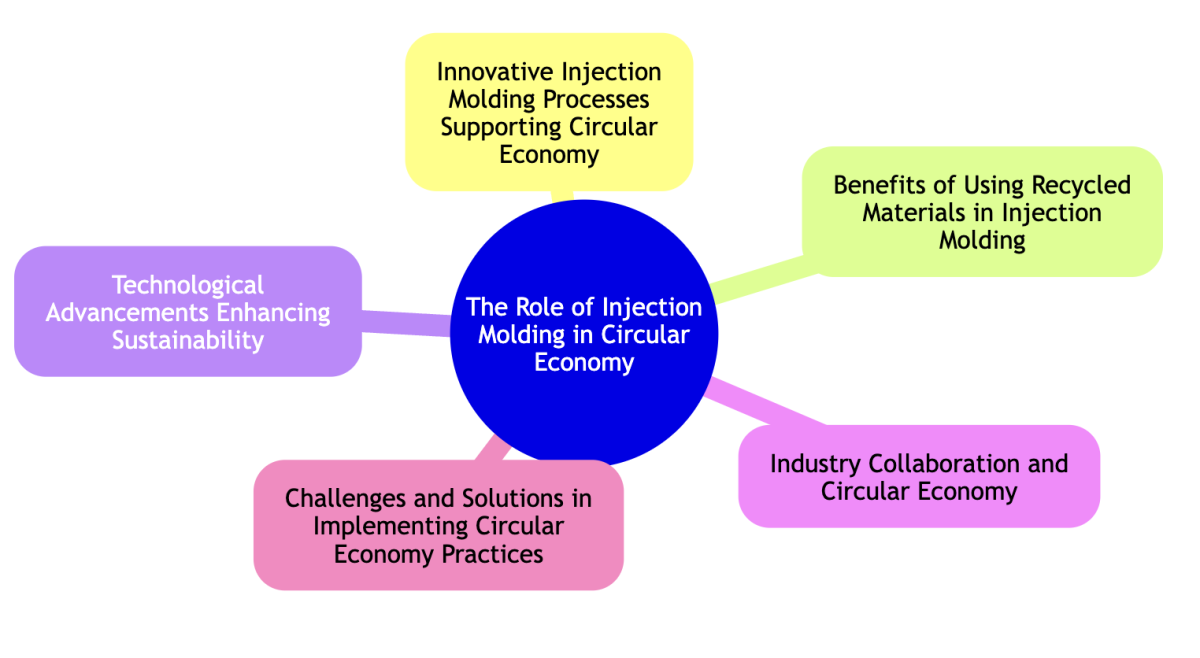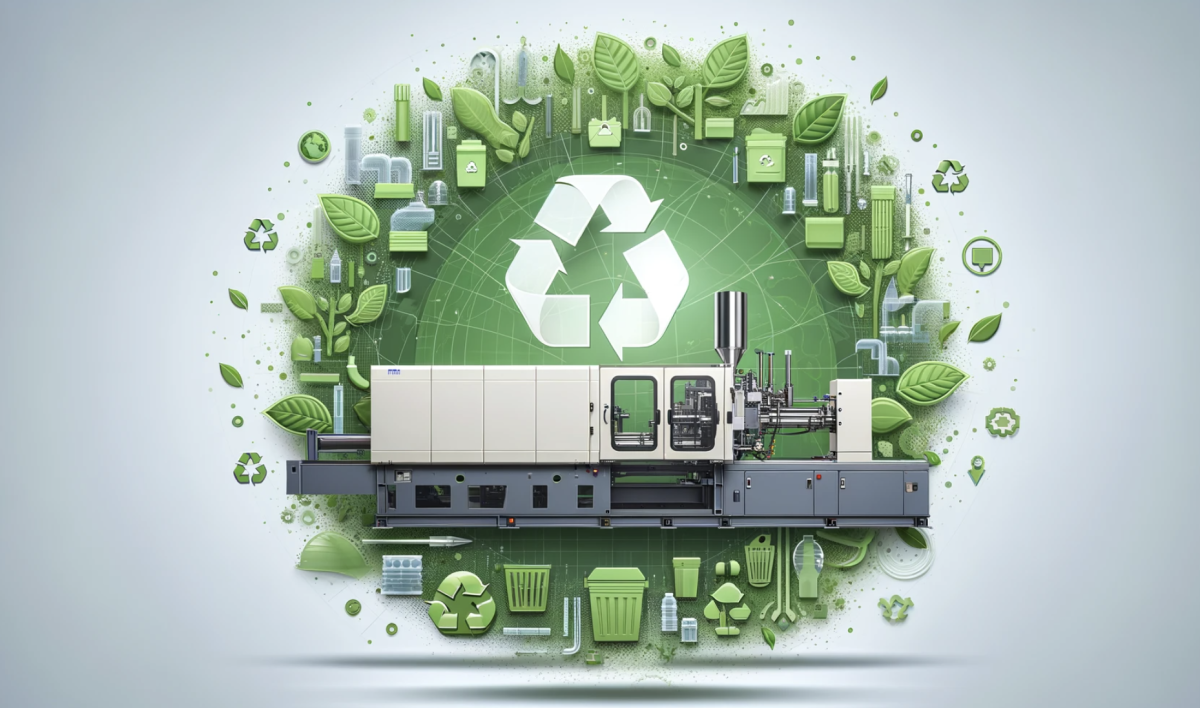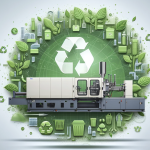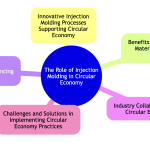Injection Molding and Circular Economy
Injection molding has an integral role in the circular economy.
The injection molding process is a perfect case study for integrating waste elimination principles. Injection molding uses raw materials (plastic) to create countless products and components. If plastic is recycled and processed to allow reuse as a raw material, injection molding companies can use it!
Reduce, reuse, recycle - the classic 3 R’s of sustainability.
Injection molding companies focusing on circular economy principles REDUCE their need for material by REUSING these RECYCLED plastics.
Injection Molding company - JDI Plastics - proudly sources sustainable materials with early involvement for quality assurance. Call today for top-tier injection molding services!
Key Takeaways
- Injection molding enables high recyclate content in products.
- Innovative processes reduce energy consumption and CO2 emissions.
- Digital tools enhance process stability and material traceability.
- Filtration and degassing improve product quality.
- Collaborative efforts are vital for a successful circular economy.

Innovative Injection Molding Processes Supporting Circular Economy
Advanced injection molding processes significantly boost the circular economy by maximizing the use of recycled materials.
These processes not only enhance efficiency but also improve the quality and sustainability of the final products.
- Skinmelt Process: Coats recyclate with virgin material for high-quality finishes.
- Co-Injection: Utilizes layers of recycled and virgin materials.
- Two-Stage Process: Directly processes regrind, eliminating extra steps.
Comparison Table: Reusability of Plastics in Injection Molding
|
Plastic Type |
Reusability |
Properties |
Applications |
|
Polypropylene (PP) |
High |
Maintains properties well through recycling |
Packaging, automotive parts |
|
Polyethylene (PE) |
High |
HDPE is strong, LDPE is flexible; both can be reprocessed multiple times |
Containers, bottles, piping |
|
Polystyrene (PS) |
Low |
Becomes brittle and loses integrity; contamination issues |
Disposable cutlery, packaging |
|
Polyvinyl Chloride (PVC) |
Moderate |
Releases harmful chemicals during processing; specialized handling needed |
Pipes, fittings, flooring |
|
High |
Retains strength, toughness, and stability through multiple cycles |
Automotive parts, consumer electronics |
Benefits of Using Recycled Materials in Injection Molding
Using recycled materials in injection molding offers significant environmental and economic advantages.
First, it lowers energy consumption.
Processing recycled plastics typically requires less energy compared to manufacturing new plastics from fossil fuels. This reduction in energy use directly translates to decreased CO2 emissions, contributing to a smaller carbon footprint.
Moreover, using recycled materials helps reduce raw material costs.
Recycled plastics are generally less expensive than virgin materials. These cost savings are passed on to consumers or reinvested in other areas of production, making recycled plastics an economically sound choice for manufacturers.
In summary, incorporating recycled materials into injection molding processes is both eco-friendly and cost-effective.
Technological Advancements Enhancing Sustainability
Digital Solutions and Automation
Digital tools like the inject 4.0 program are revolutionizing the injection molding industry.
These tools enhance process efficiency and stability, which is crucial for incorporating more recycled materials.
By automatically adjusting to changes in material quality, these systems maintain consistent product output, reducing waste and optimizing resource use.
Filtration and Degassing Techniques
Advanced filtration systems and degassing techniques are essential for maintaining high product quality when using recycled materials.
Filtration removes contaminants, such as paper or metal, ensuring the recyclate is clean before processing.
Degassing eliminates moisture and volatile compounds from the material, preventing defects like streaks or odors in the final product.
These technologies allow for higher percentages of recycled content without compromising quality.
Industry Collaboration and Circular Economy
Collaboration across the supply chain is essential to achieving circular economy goals. By working together, companies can create a more sustainable and efficient process, from raw material production to recycling.
- Partnerships with recycling initiatives: Collaborating with organizations specializing in recycling helps improve the quality and availability of recycled materials.
- Participation in global sustainability platforms like the Ellen MacArthur Foundation: Engaging with international sustainability efforts fosters innovation and sets industry standards.
- Engagement in local and international sustainability projects: Taking part in global projects helps share best practices and develop new solutions for sustainable manufacturing.
Challenges and Solutions in Implementing Circular Economy Practices
The injection molding industry faces significant challenges in adopting circular economy practices.
One major issue is the variability in the quality of recycled materials.
Recycled plastics often contain contaminants and inconsistent properties, making them difficult to process uniformly. However, innovative solutions like advanced filtration systems and digital monitoring tools are being developed to address these issues.
These technologies help improve the consistency and quality of recycled materials, enabling their broader use in high-quality injection molding applications.
Sustainable Injection Molding From JDI Plastics
Manufacturing processes like injection molding have enormous potential for supporting circular economies. Plastic has been in the spotlight for environmental concerns for years—it is our responsibility as plastic professionals to push towards sustainability. Reducing, reusing, and recycling are principles we should all follow.
Collaborative efforts across the supply chain are essential to achieving these goals, as they promote sharing best practices and developing new, sustainable solutions.
JDI Plastics is committed to providing industry-leading plastic injection molding for various industries. Our dedication to quality and environmental responsibility makes us a trusted partner in the industry.
We invite you to reach out with any questions or concerns.





